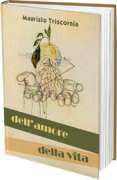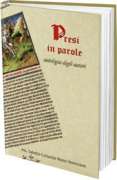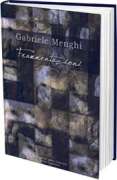Yesterday and today
English version
PART ONE
Immediately after The Second World War a mass of immigrants from the devastated European Countries settle in Australia.
This people were from the most desperate social classes trying to restart a new life in a new country.
Between them were many political refugees escaping the Communism invasion of their land as well, between them were someone that during the war had been involved in genocides on the side of the Third Reich.
This story reflects those people trying to surge to a new life in a new country which had accepted and gave them hopes that a better tomorrow would exist.
The inspiration for this story came to me as a surprise, the day I visit my mother, who at that time lived in Newcastle, Australia, and on that occasion told me, ‘I have a new neighbor and I believe I met him before. That man is too a secretive person and seems to hide his past. I’m sure to recognize in him the German Commandant that I came to know during the war in Carnia, and came regularly for a drink at our Cantina.’
He wasn’t there for too long. A few months after the German bloke moved away, silently and mysteriously in the same way he came. Was my mother right in recognizing in that person, the German Commandant responsible of atrocities during the war, and was he running away, trying to escape from people who possibly could recognize him?
~*~
At the Newcastle Cemetery that was the day of his funeral.
Very few people were attending at the simple burial service and only a woman had a few roses, which she mercifully deposed over the coffin. Her eyes were full of tears. She had come to know him over fifty years ago, in an alpine village in Italy, but then the last days of the war had separated them. When they finally met again an entire lifetime had divided them. He had spent most of his time running away from the past, hiding under a false name. Still someone could have remembered him in the position of the German Commandant in that Alpine district, during those days of atrocities caused by the war. Many people had died because of it, but was he directly responsible for that?
On his account there was one possible accusation, the execution of a group of women, an act of fury and desperation. Was that critical tense time enough justification for the killing of those unarmed women? And were the fifty years of isolation and the running away of their executioner, a fugitive from the past, racing from place to place, penalty enough for such a crime?
~*~
At the time of the Second World War, Libya was a theatre of hostilities and on neither side had been real winners or losers. Heroism was part of the time as well as acts of treachery and misunderstanding was committed in profusion.
The Italians never completely understood the reason for that war. The majority of them had never wanted it. They had been sent to war without reliable weapons and their supplies were inadequate. The ships crossing the Mediterranean were regularly sunk by the British. The wrecks and the bodies of sailors floated for long days over the sea and the Gulf streams pushed them to the African coast of Tobruk. That view wasn’t good for the morale of the Italian troops quartered there. There were rumors circulating among the troops that someone in command was passing information to the enemy. Word had also spread that even Italo Balbo, the hated Chief Commander had passed information to the Allies, and one day of June of 1940, while he was flying over Tobruk, he failed to give the correct recognition signals and was shot down by the Italian guns.
It was a time of jubilation for many, particularly for Angelo Pirona, a Sergeant in the Engineering Corp. On that day, working in the Tobruk harbor, he salvaged two casks of brandy that were floating in the calm harbor. He took them back to the barracks and merrily toasted, with the others in his platoon the death of Balbo. He had been happily drunk for the next week, honoring in that way the right punishment for the traitor.
~*~
- Blog di Carlo Gabbi
- 1797 letture

 Sostieni anche tu il nostro sito
Sostieni anche tu il nostro sito
 le nostre pubblicazioni
le nostre pubblicazioni 





























